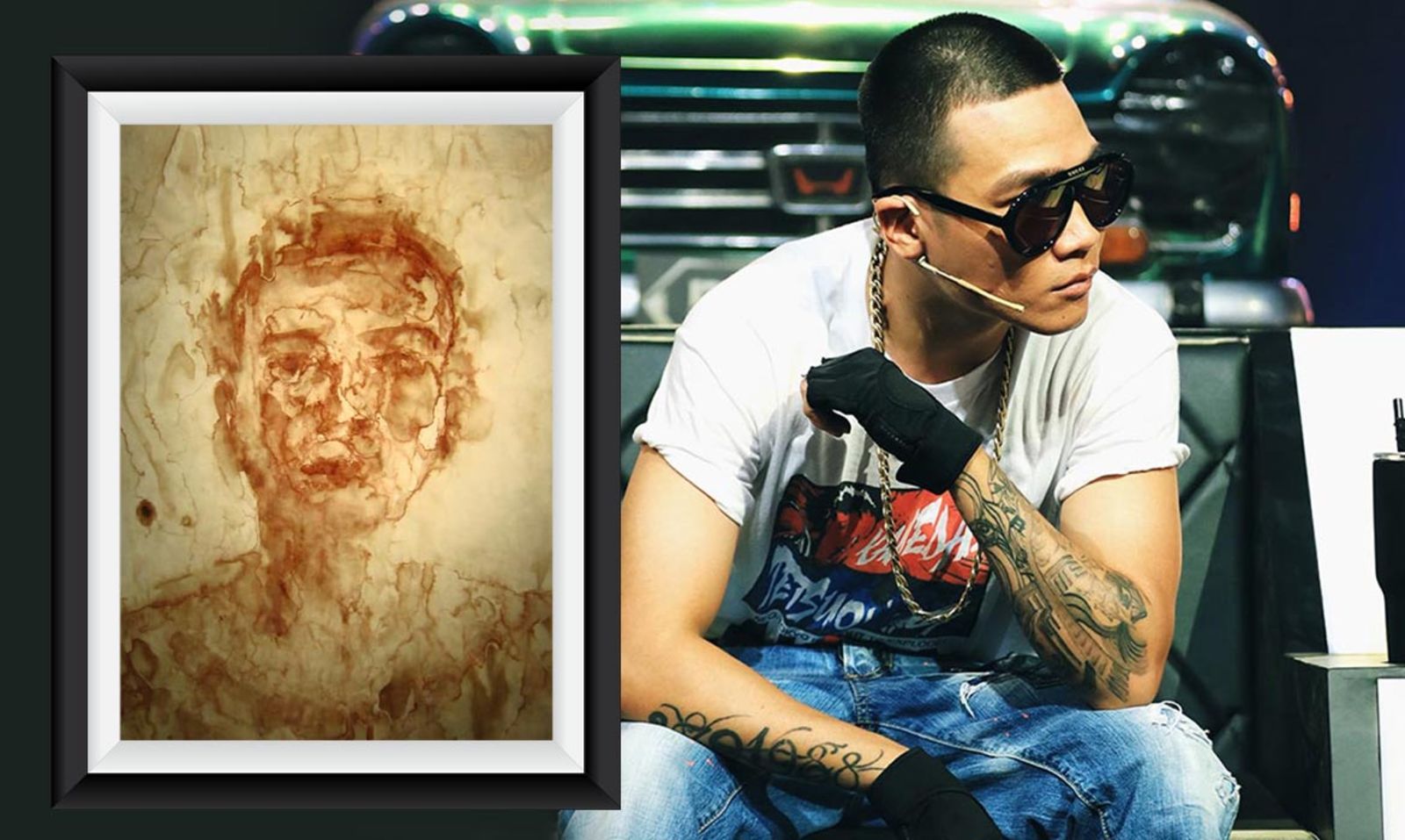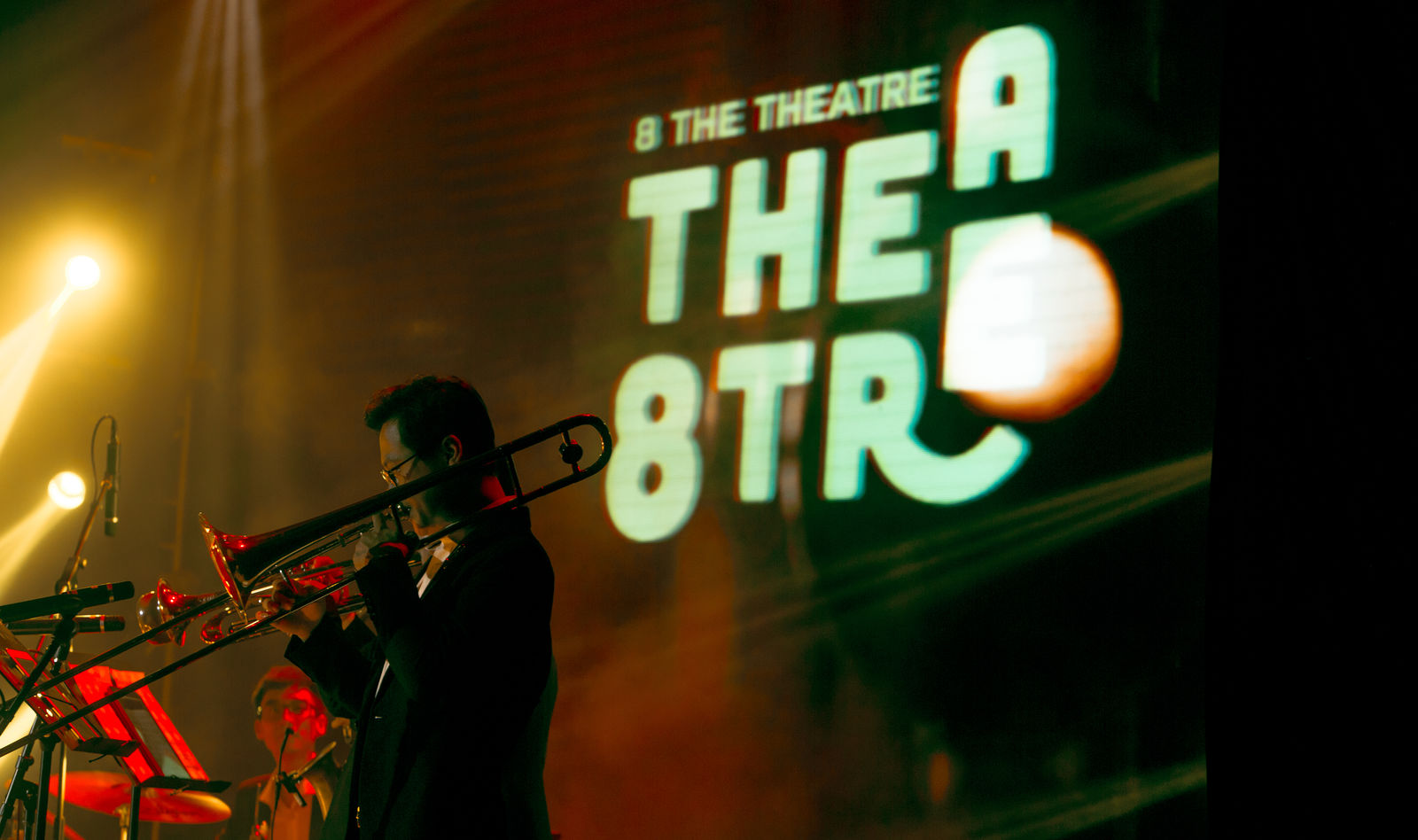You never know where a story idea is going to come from.
Some time ago, my partner showed me an Instagram page called @newwavedocumentary, curated by a filmmaker named Elizabeth Ai. It features pictures and album covers from the Vietnamese-American diaspora in the 1980s and early 1990s who were fans of European new wave, a genre of music that, curiously, attracted ardent followings in places like Orange County, San Jose and Houston — and beyond.
As the pictures show, this was about much more than music, as the young people in the photos adopted a lifestyle of massive perms, slick leather jackets, and stylish 1980s sports cars (like the modified Toyota Supra above).

Photo provided by Elizabeth Ai.
Some more digging led to an excellent profile of Ai written by Eric Brightwell for diaCRITICS, as well as a 2010 post by Brightwell featuring a conversation with several Vietnamese Americans who were in the Vietnamese new wave scene in the 80s.
A video promoting a Vietnamese new wave event in Garden Grove, California.
I started asking my Vietnamese-American friends whether they were familiar with this seemingly obscure cultural moment. Many were not, but some recalled deep connections.
"New wave music was all I heard growing up in Nome, Alaska in the 1980s, where my parents and extended family resettled," said Tin Nguyen, an immigration lawyer now living in North Carolina. "It was definitely the soundtrack for my childhood in the land of the midnight sun. My dad blasted Lynda Trang Đài and other great new wave Vietnamese refugee artists on our way to the tundra to pick blueberries or go fishing. New Wave was the music helped newly refugee or resettled Vietnamese heal from war and give them hope for a brighter future in our new homeland."
Mai Pham, who lives in northern Virginia, shared that she was exposed to new wave at house parties while growing up in the 80s. "We called it Vietnamese new wave, but westerners would categorize it as Euro disco," she said. "It was popular among my friends, and still is today."

Photo provided by Elizabeth Ai.
What Is Vietnamese New Wave?
I will admit that I was somewhat confused by this term at first. A Spotfiy playlist created by Ai features groups like Bad Boys Blue, Modern Talking and C.C. Catch — none of whom are Vietnamese. These bands were part of various European disco genres under the overarching umbrella of new wave, and became hugely popular among certain sections of the growing Vietnamese community in the US during the 1980s, when young people who left Vietnam during or directly after the war were coming of age.
The synth-heavy music likely isn't everyone's cup of tea, but it caught on, and Vietnamese singers began covering songs. Arguably the most notable of these singers is Lynda Trang Đài, who was born in Da Nang in 1968 and went on to attract a huge following among Vietnamese new wave fans for her audacious stage persona and style (she is prominently featured in the image at the top of this story).
Her music videos are gloriously 80s, and would look right at home in any karaoke parlor in Vietnam.
The music video for Lynda Trang Đài's 'Supermarket Love Affair.'
Đài is also a mainstay on the popular diaspora variety show Paris by Night. Sadly, she didn't respond to the messages I sent her for this story. Other Vietnamese singers covered European new wave sub-genres like Italo disco.
An Italo disco cover called 'Hãy Đến Với' (Em Canta Amigo) by Jeannie Mai.
The Documentary
Back to Ai, the filmmaker. Unsurprisingly, given the name of the Instagram page mentioned at the start, she is working on a documentary called New Wave, described as "a historical coming-of-age documentary about Viet refugee youth who fled their homeland and redefined their identities through the 1980s new wave music scene." Several weeks ago, I spoke with her about the project, which began two years ago.
"I recently became a mother and I yearned for a creative project to throw myself into that was personal, about me and my family, that didn't revolve around the war," she said from her home in Los Angeles. "I wanted to share a narrative that wasn't about tragedy, or specifically about the boat people. I mean that's obviously tangential to the story because my community, my people, in large part would not be in America or other countries outside of Vietnam had it not been for the American occupation in Vietnam."
She looked back to her own personal experiences, and remembered seeing her aunts and uncles — people a decade or two older than her — listening to new wave and embracing the style as she grew up in the 80s.
"There was this DIY, scrappy aesthetic that revolved around the music they were listening to," she said. "I think the beautiful part of it is that it's a hybrid culture they created; the youth that lost their homeland didn't quite identify as Vietnamese-only anymore, and they were so new to America, and they weren't accepted by Americans, so they had to figure out an identity all their own. I think that was what made this subculture so unique, the music was neither American or Vietnamese, and it sounded like the future with its synthesized instrumentation."

Photo provided by Elizabeth Ai.
Ai argues that the adoption of new wave wasn't surprising, as Vietnamese had already been exposed to international types of music: "Because of former French colonization there was already European and western influence in Vietnamese culture. Additionally, when American GIs occupied Vietnam, they demanded Vietnamese musicians entertain them with the music from their homeland. Foreign influence has long been a part of Vietnamese culture, it's no wonder German disco and Italian disco, better known as Eurodisco and Italodisco, was something they glommed onto."
She also echoed Nguyen's above point about new wave offering an escape from dark pasts.
"I think it really was a counterpoint to the trauma they had experienced," Ai shared. "If you listen to the music, it's all about love and fun. It wasn't as high-stakes as the lyrics from the era right before the war ended, from musicians like Joan Baez or Bob Dylan. Eurodisco song lyrics like, 'you're my heart, you're my soul,' and, 'jump in my car, I want some fun.' It's about lighthearted and inconsequential things that kept you in a hopeful and upbeat headspace as you're rebuilding your life."
Ai, who expects to complete her documentary in 2022 — a target date that was delayed due to the pandemic — has been surprised by the positive reception to her work. In addition to speaking with me, she had heard from multiple other publications: "I've worked on a lot of projects with big names like ESPN, VICE and National Geographic, and I haven't had this kind of interest, but I think maybe because it's such a niche, specific, and a subcultural thing, people are very curious."
She has also taken great joy in the ground-level work of collecting old photos and other memorabilia from the Vietnamese new wave era from everyday people, but is still hoping for more.
"I'd love to receive more archival, more videos and footage, but people were just really lacking resources and money back then. It wasn't like today where everyone has a camera and takes pictures of their cup of coffee or a sandwich," Ai said. "Back then, you'd buy a roll of film because it was somebody's birthday or a wedding, not like 'oh, we just made a bowl of phở, let's take a picture of it.'"
Still, Ai's collection from both her own family's archives and crowdsourced from followers on Instagram and Facebook, is impressive, and highly unique — if you have photos or other memories from that era, please share them with her through those platforms, or by email at researchnewwave@gmail.com.
"I had never seen Asian people like this onscreen," Ai recalled from when she began looking into this subculture. "I'd never seen them with the big hair, the funky clothes, the synth music, and the attitude and rebellion that comes with being a teen. It' exactly the kind of representation people of color are craving in the media."

Photo provided by Elizabeth Ai.
In a bit of positive news during this awful year, Ai and the team behind New Wave were recently awarded a few grants. One in particular was from Film Independent and CNN's Original Docuseries team. In an email, Ai said "coming out of this experience, our network has expanded and we now have a deeper understanding of the considerations to tell this story in a longer format, should we decide to pursue that route."
Ultimately, Ai hopes that viewers can learn as much about Vietnamese new wave as she has while making the documentary: "This was not just people covering some music; there's a long lineage of foreign music present in the lives of people living in Vietnam, so it wasn't a big stretch for them to sing a song in English, French or Spanish, and also cover it in Vietnamese too. I've learned a lot about the history of my resilient people, the Vietnamese diaspora, resettling and rebuilding, and I'm excited to share that with the world."
















